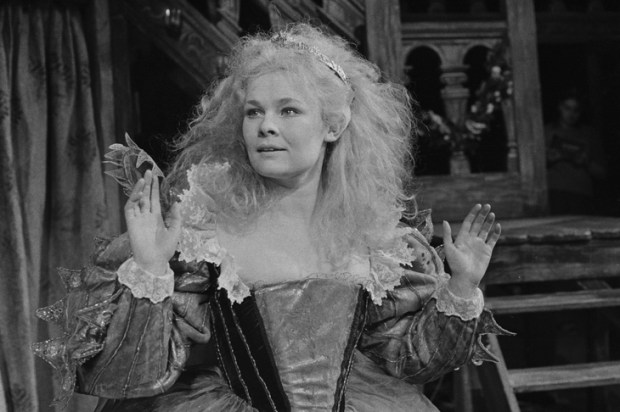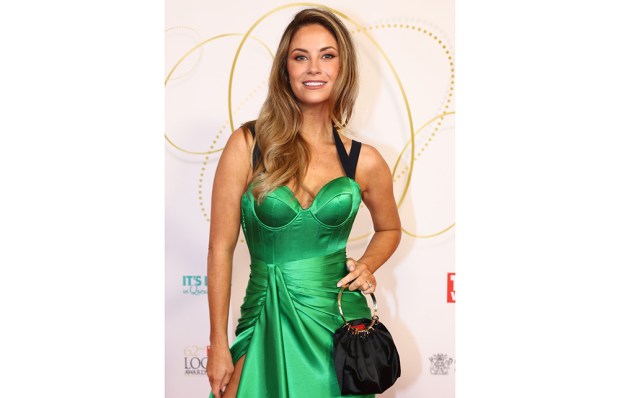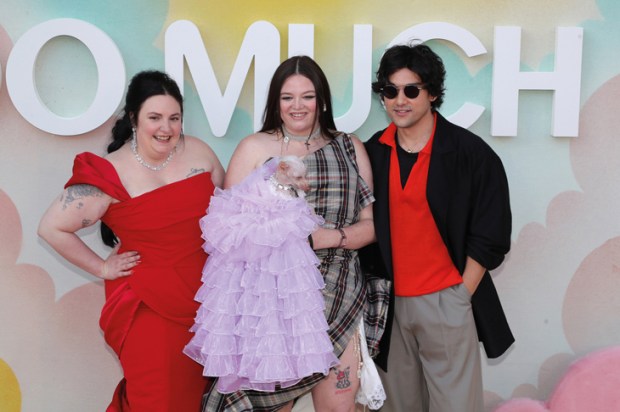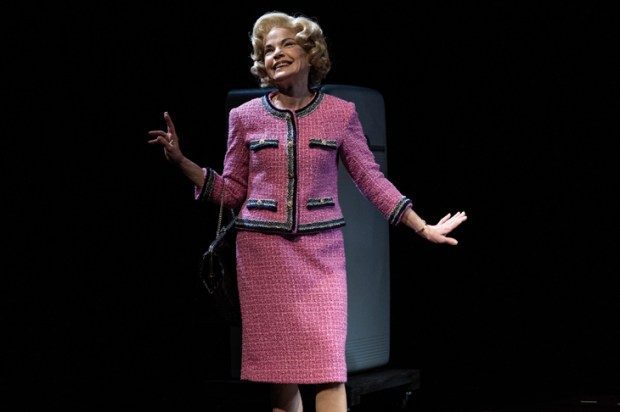The Australian Ballet seems to have had a smash hit with Oscar. Not only did the ballet, choreographed by Christopher Wheeldon and commissioned by David Hallberg, get the highest kind of praise from critics, it was also apparently a dazzling event with an opening that included some sumptuously adorned drag queens to highlight the way ballet could be an up-to-the-minute thing of glamour and confrontation and not just a constant revival of the vintage and classical.
Now the Australia Ballet is streaming Oscar from the Sydney Opera House on 19 November at 7:15 p.m. direct to the home viewer for $29 and if you don’t want to watch it live you can watch it at your leisure until 3 December. Is this an example of double dipping on the Ballet’s part? Well, yes, but it underlines the fact that David Hallberg knows how to exploit the bonds that link the classical and the popular.
It’s a trick that Jaime Martín of the Melbourne Symphony Orchestra is playing on by doing the John Williams score to that Christmas classic Home Alone.
It’s interesting in the case of Oscar that the portraits of the principal dancers – Jarryd Madden as Wilde, Sharni Spencer as Constance, Joseph Caley as Robbie Ross, Adam Elmes as Bosie – have an alluring, erotic intensity that has nothing to do with the fancy footwork.
The Ballet is also advertising a package of bargain opera tickets which range from John Neumeier’s Nijinsky, that homage to the most legendary and apparitional of all dancers, to Prism, which includes innovative work by Jerome Robbins and Stephanie Lake, to Manon that much loved favourite where the classical and the romantic meet with an epic amplitude and variegation in Sir Kenneth MacMillan’s gloriously animated version of what can seem the essence of traditional ballet.
Perth Festival, which has a new director Anna Reece, has announced the 2025 season which runs from 7 February. You’ll get everything from Peter Garrett and the start of Fontaines D.C.’s national tour to Karla Bidi which is based on the Noongar tradition of the lit fire that guides and welcomes visitors.
Old memories of theatre in the midst of this city of light and warmth include an abridged Magic Flute by the great Peter Brook (the most highly regarded British director of the twentieth century) and the all-male Shakespeare of Propellers run by Ed Hall (the son of the other one, Sir Peter Hall). Johnny Flynn was a great asset in that play about fleet and fugitive gender roles, Twelfth Night.
There was also a production by Peter Brook of that great Hindu epic The Mahabharata and there is a new version by Toronto’s Why Not Theatre which can be seen either in two separate sessions or as a single grand performance which comes with an Indian feast and runs from midday till midnight. You can also see Samsara which plays on Balinese shadow puppetry but somehow The Mahabharata seems to top all other comers because it is the all inclusive epic from the Sanskrit which Western language is derived from.
Well, that’s not really an advantage but it is the case that T.S. Eliot the most intimately familiar of the great poetic modernists could read Sanskrit and so could J. Robert Oppenheimer. Eliot quotes the Bhagavad Gita in Four Quartets (‘So Krishna admonished Arjuna’) and Oppenheimer famously cited it in his description of what it was like to be the father of the atom bomb, ‘I am become Shiva, destroyer of worlds.’ Oppenheimer in fact invited Eliot to Princeton when the great Los Alamos executive of the terrible weapons succeeded Einstein as the director for the Institute for Advanced Study. He was appalled that all Eliot wrote there was The Cocktail Party (though that provided a great role for Sir Alec Guinness). In any case The Mahabharata is the epic from which the key text of Hindu spirituality is plucked and it will be fascinating to see how Why Not Theatre negotiates the way war and the striving of the individual soul, the Atman, became one with the Brahmin, the world soul which is the face of God.
Colm Tóibín said he always felt safe ‘where we had been’ citing India and its dealings with the Raj. Levi Strauss said Oxford reminded him of India because of India’s mock Gothic. Then, of course, there’s the cricket.
It’s a complex question how we depict history. The other night on YouTube we watched Mandela and de Klerk, filmed in Cape Town in 1997 with Sidney Poitier as the great African leader and Michael Caine as the South African president who realised apartheid had to end. When Mandela met Malcolm Fraser he said, ‘Tell me, Fraser, is Donald Bradman still alive?’
Clint Eastwood is alive though it’s apparently problematic whether the man who made that masterpiece Unforgiven will have the money to advertise his current film, never mind that he had the versatility to film the second world war from the Japanese point of view. Have the great auteurs become remnants of their own greatness in a forgetful world? Then there are the weirdnesses. Re bombs: Steve Coogan, eminent comedian, is actually doing a stage version of Kubrick’s Dr Strangelove. Coogan like his friend Rob Bryden with whom he does those travel shows in which they turn on the tap of the great British voices is not likely to match Peter Sellers and you wonder why he’s asking for the comparison.
The British stage has other attractions at the moment and theatregoers might be better off with the acclaimed Othello with John Douglas Thompson in the title role at Stratford or indeed David Oyelowo at the Olivier Theatre as that proud warrior who collapses at the appeal of his mother, Coriolanus.
A case of brush up your Shakespeare. Sharmill are showing a British version of Cole Porter’s Kiss Me, Kate from 29 November – the musical which fiddles very stylishly with Shakespeare’s The Taming of the Shrew. It’s a post-Rodgers and Hammerstein musical and the author of Anything Goes enlivens the original with some great songs including ‘I hate men’ and ‘I’ve come to wive it wealthily in Padua’ which arguably improve on the original in a way that parallels some of the great songs – like ‘Well Did You Evah’ and ‘Who Wants to Be a Millionaire’ – with which he turned Philadelphia Story into High Society.
Got something to add? Join the discussion and comment below.
You might disagree with half of it, but you’ll enjoy reading all of it. Try your first month for free, then just $2 a week for the remainder of your first year.













